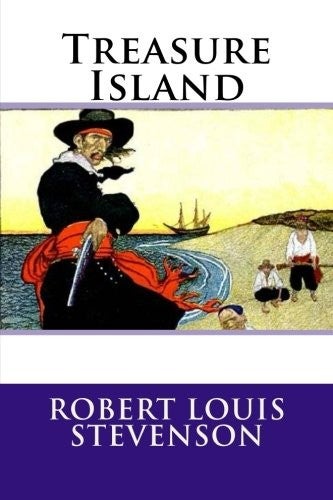My book of a lifetime...Treasure Island By Robert Louis Stevenson
'I think the book sticks in my mind because it began a lifelong love/fear relationship with the ocean'

Your support helps us to tell the story
From reproductive rights to climate change to Big Tech, The Independent is on the ground when the story is developing. Whether it's investigating the financials of Elon Musk's pro-Trump PAC or producing our latest documentary, 'The A Word', which shines a light on the American women fighting for reproductive rights, we know how important it is to parse out the facts from the messaging.
At such a critical moment in US history, we need reporters on the ground. Your donation allows us to keep sending journalists to speak to both sides of the story.
The Independent is trusted by Americans across the entire political spectrum. And unlike many other quality news outlets, we choose not to lock Americans out of our reporting and analysis with paywalls. We believe quality journalism should be available to everyone, paid for by those who can afford it.
Your support makes all the difference.Some memories don’t have a beginning; I can’t remember why it became a tradition but when I was younger and I wasn’t feeling well, I’d always ask my mum to read me the Ladybird Children’s Classics version of Treasure Island.
I’m sure sometimes I faked a stomach ache or cold just to hear it again. I don’t know the first time I asked for it to be read to me, or why, maybe I’d just fallen in love with it the first time I heard the language.
When I was old enough, I bought myself a copy of the full, original Robert Louis Stevenson version and loved it just as much. Mostly, I think, for the clichéd reasons; the sense of adventure, the masterful narrative that Stevenson weaved (and Ladybird abridged) but mainly I think the book sticks in my mind because it began a lifelong love/fear relationship with the ocean.
The high seas, as for a lot of people, both attract and terrify me; something of the sense of adventure and the possibility of wreck and ruin irrevocably intertwined. Maybe I was intrigued too, and still am, by that “band of men” mentality, the wholly male and masculine world of being at sea and pirating.
I think there’s an innocence to the story too, despite its violence and its grim realities of kidnap and killings (which the Ladybird book smoothed pleasingly for younger ears), or perhaps just a sense of places yet-to-be-discovered which we don’t have so much in this world anymore.
Everything is too easy, so quickly connected; in this day and age they’d probably just get the island up on Google Maps. Kids need to know there are still things in the world they can discover; to know that X could mark the spot and not just the end of a text message. As I’ve got older, my tastes are much more for novels or films where nothing happens at all, but it’s a book that I carry with me, in the depths, through my life.
One day, one of my re-readings of the novel, which I undertake every couple of years, will take place on a windswept cliff (or safe inside a cafe perched on a windswept cliff) and I’ll look out to the choppy waters and be terrified by what I see, but the story will make me brave, and I’ll hear it in my mum’s voice, and be comforted.
Andrew McMillan’s debut collection, ‘Physical’, is shortlisted for the 2015 Costa Poetry Award
Join our commenting forum
Join thought-provoking conversations, follow other Independent readers and see their replies
Comments